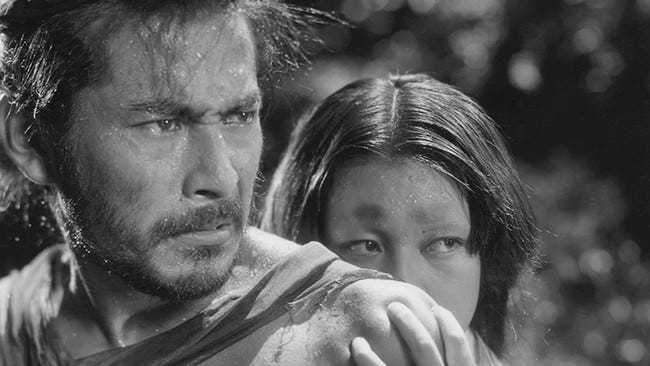What is your vantage point?
Are you an objective observer or subjective storyteller?
Dear Rethinkers,
When the news gets too loud or overwhelming, I often turn to old books and movies (and the seedlings in my greenhouse) to break the whirring noise. Things that have a completely different temperature or tone. Things that help me think or feel differently about something important. The other day, I rewatched the iconic Japanese film Rashomon, made by Akira Kurosawa over 70 years ago. If you haven’t seen it, please do. It’s not a comforting film, but a masterpiece in storytelling that is highly relevant today. At the film’s heart, is a topical question: what is real and what is true?
Here’s the premise: a Samurai is found dead in a bamboo forest. One by one, four witnesses – a woodcutter, a bandit, the Samurai’s wife, and even the ghost of the Samurai himself – recount what happened. However, as they tell their version of the story, it becomes clear that each account of the murder is contradictory but equally believable. At the time, a movie with multiple perspectives was groundbreaking.
Filmed over half a century before the internet came into existence, The Rashomon Effect is now a term used to describe when a single event is interpreted or recounted differently. In the legal realm, for example, lawyers will speak of the “The Rashomon Effect” when witnesses give contradictory testimony. The film is a cultural symbol of the relativity of the truth and the subjectivity of memory.
Today, it often feels like we’re living in Rashomon.
The Rashomon Effect is captured in this short animation from TED-Ed called 'How do we know what's true?"
It’s easy to watch the film and get locked into a debate about our dangerously “post-truth” world. But there is a subtler, more powerful message that I think we can all learn from and put into practice – what is your vantage point?
Read on to learn why understanding your vantage point matters and how to identify it.



